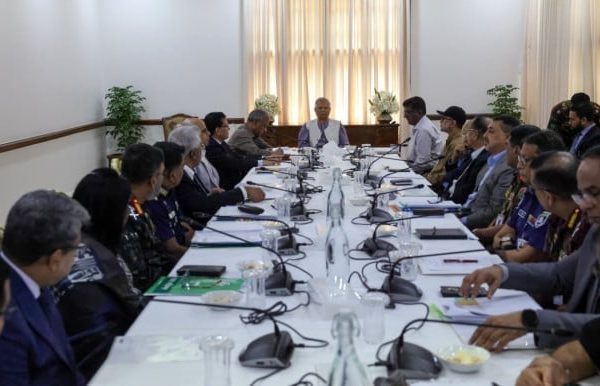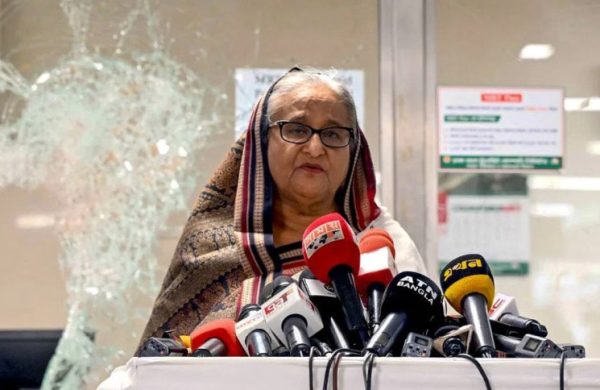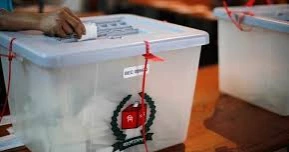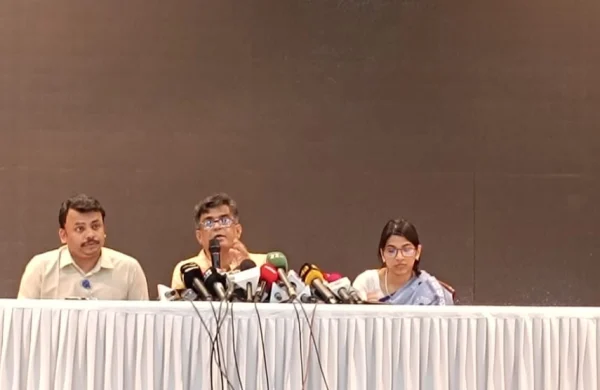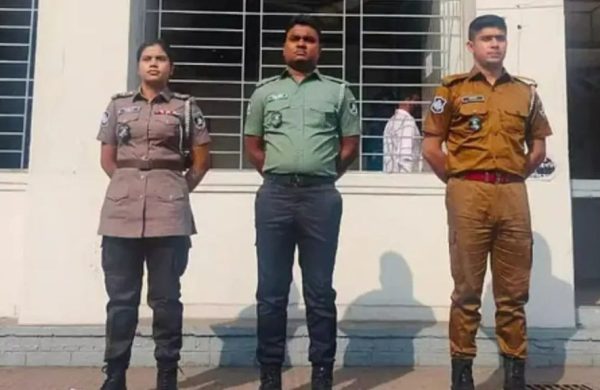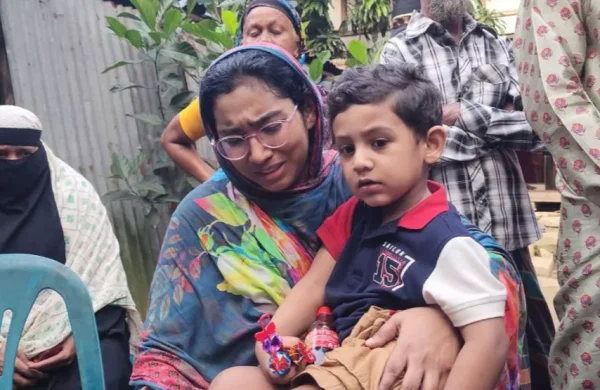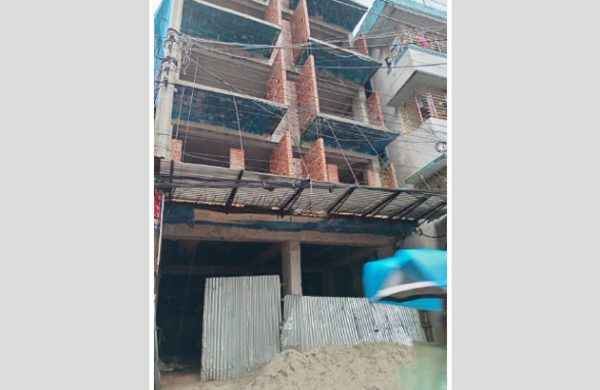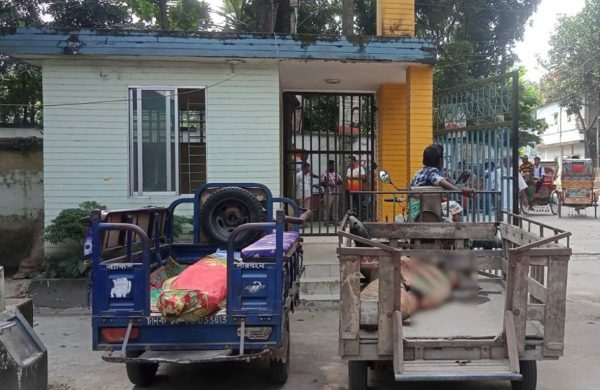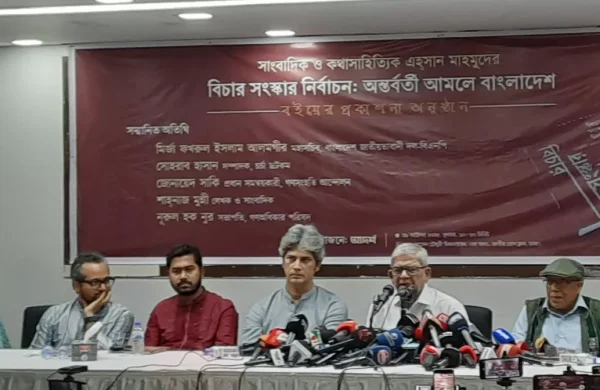AL out of picture, ACC changes gears. Now it goes after once-untouchables
- Update Time : Sunday, September 8, 2024
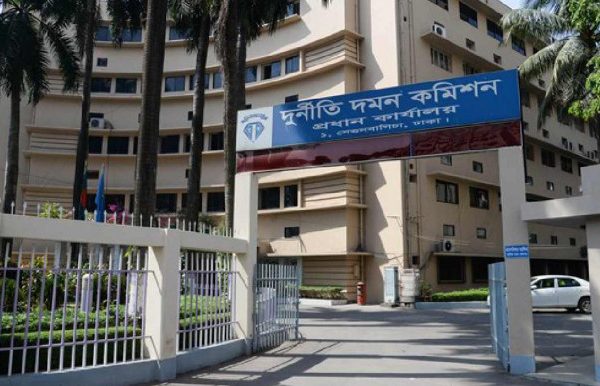
TDS Desk:
For the past 15 years, the Anti-Corruption Commission (ACC) has been turning a blind eye to the misdeeds of ruling party ministers, MPs, top bureaucrats and businessmen, concentrating instead on smaller fish.
However, since the fall of Hasina’s Awami League government on 5 August, the anti-graft body, established in 2004, has turned the tables and started to go after the big fish long considered untouchable.
Over the past few weeks, the ACC has launched inquiries into at least 82 high-profile individuals, including 71 former ministers and MPs. On top of that, the commission is digging into the affairs of over 200 others, including their family members, with officials hinting that this list is just the tip of the iceberg.
Despite being an independent body, ACC officials admitted they had to toe the line and wait for the green light from government high-ups before taking any action against Awami League leaders.
The commission has been in the hot seat for not showing enough backbone, turning a blind eye to influential figures, letting high-ranking bureaucrats off the hook for corruption, and effectively granting unwritten immunity to the administrative elite.
According to ACC sources, since 15 August, the commission has announced plans to probe at least 35 former ministers. These investigations will focus on allegations of corruption during their time in office.
Among the former ministers under scrutiny are Asaduzzaman Khan Kamal, AHM Mustafa Kamal, Shajahan Khan, Zillul Hakim, Tipu Munshi, Nasrul Hamid, Anisul Huq, Dipu Moni, Tajul Islam, Junaid Ahmed Palak, Zahid Malek, Mohibul Hassan Chowdhury Nowfel, Hasanul Haq Inu, and Hasan Mahmud.
Additionally, at least 38 former parliamentarians are now on the wanted list. Among them are Ashim Kumar Ukil, Saifuzzaman Shikhor, Dhirendra Devnath Shambhu, Kujendra Lal Tripura, Sheikh Afil Uddin, Kazi Nabil Ahmed, Enamul Haque, Solaiman Haque Joarder, and Shah Alam Talukder.
These former ministers and MPs face various charges, including abuse of power, acquiring illegal wealth worth thousands of crores of taka, smuggling money and gold abroad, and amassing unusual assets under their family members’ names.
Former ACC Director General Maidul Islam told that, “Despite complaints against these individuals, the ACC could not take action for a long time. The files were left unattended. After the fall of the authoritarian regime, cases are being looked into.
“It clearly indicates that the previous government exerted significant influence on the ACC. With the current government, such influence is no longer present.”
When a complaint is submitted to the ACC, the scrutiny committee reviews it and recommends whether to proceed with an inquiry. However, influential figures have largely escaped scrutiny.
Officials said, last year, the ACC received 15,437 complaints, of which only 845 were accepted for inquiry. In the first six months of this year, from 5,300 complaints, only 363 were approved for inquiry.
In other words, despite receiving over a thousand complaints each month, only 50-60 are selected for probing, most of which involve minor corruption.
Since the fall of the Awami League government, there has been a shift towards focusing on major corruption cases, according to officials.
A senior ACC official, on condition of anonymity, told that, “Only 4-5% of the complaints we receive are forwarded for inquiry by the scrutiny committee. However, in August, the rate of investigations increased significantly.
“Although the ACC was said to be independent, it couldn’t pursue cases against influential individuals without a signal from the top, which allowed many ministers, MPs, and bureaucrats to evade accountability,” he added.
The former police chief Benazir Ahmed, however, faced the ACC scrutiny before the fall of Hasina, but it was only after a national daily ran a two-part report on his undisclosed asset acquisition. The watchdog uncovered a significant amount of wealth tied to Benazir and his family members.
Besides, former DMP commissioner Asaduzzaman Mia and former DB chief Harun Or Rashid recently have come under the ACC scanner.
The former DB chief faces allegations of owning at least 18 properties (land and buildings) in Dhaka’s Uttara alone, in addition to properties in other areas.
Additionally, the ACC is looking into allegations against former cabinet secretary Kabir bin Anwar regarding the accumulation of huge assets.
Ongoing probes are also targeting former army chief General Aziz Ahmed and his brothers, Haris Ahmed and Tofail Ahmed Joseph, over various charges, including illegal assets, money laundering, and illicit transactions.
Former National Security Intelligence (NSI) DG TM Jobair is under scrutiny for allegedly amassing substantial wealth domestically and laundering large sums of money across London, Dubai, Singapore, and Turkey.
In addition to ministers, MPs, and bureaucrats, the ACC is now investigating three notorious businessmen who had close ties with the ousted AL government.
Businessman Salman F Rahman, former MP and prime minister’s private industry and investment adviser, faces allegations of laundering thousands of crores of taka through extensive corruption, looting, stock market scams, and financial fraud over the past 15 years.
Saiful Alam Masud of S Alam Group is under investigation for embezzling around Tk1 lakh crore from six banks, including state-owned ones.
Businessman Chowdhury Nafeez Sarafat is accused of embezzling funds through corruption and abuse of power, engaging in share market scams, and committing Tk400 crore loan fraud at Padma Bank.
ACC Secretary Khorseda Yasmeen recently told the media that the ACC operates systematically, adhering to rules in its investigations. While secret investigations were previously conducted against these individuals, public inquiries have now been initiated.
Previously, the ACC investigated various ministers and MPs, including BNP Chairperson Khaleda Zia and Awami League President Sheikh Hasina, during the 1/11 incident.
However, once the Awami League government assumed power in 2009, its members were largely shielded from ACC investigations, though proceedings against opposition figures continued.
Manjur A Chowdhury, chairman of the Center for Governance Study (CGS), told that, “We had always hoped the ACC would act as an impartial institution, but it has fallen short. Between 2006 and 2016, some 22,000 complaints were filed, but 18,000 were dismissed.”
He added, “In 2023, only 250 people were accused of official corruption across 195 cases. How could that be? With 18 crore people in the country, this data suggests Bangladesh is the most corruption-free country in the world.”
How will ACC fare in future?
Analysts now say it remains to be seen whether the watchdog can maintain its current trend and pace under a political government
Manjur A Chowdhury argued that corruption is primarily perpetrated by government officials, who were also appointed to the ACC. “The ACC needs reform and should be managed by civil society members rather than bureaucrats. He proposed that ACC cells be established in every ministry and department,” he said.
“ACC’s current approach also lacks transparency. This government is targeting specific individuals, and the BNP [if voted to power] would likely do the same. The ACC is still not operating independently,” he added.


